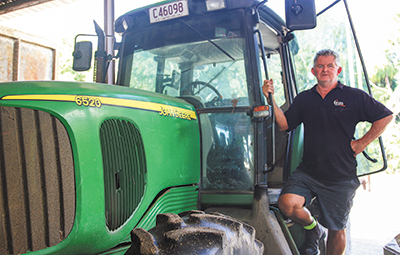Mackay Regional Council, Queensland, has partnered with local farmer, Darrell McLennan and regional natural resources management company, Reef Catchments, in an innovative stormwater quality management project.
Since commencement two years ago, the new best practice farming techniques trial has saved the Walkerston cane farmer $35,000 over two years.
McLennan said his farm has never performed better, with less work.
“I’ve achieved savings in both diesel and a reduction in the time it
takes to get the soil ready for cropping.”
The trial involved introducing new machinery to reduce the number of times the soil needed tilling and implementing a GPS-controlled tractor to guide the new machinery in a precise line.
“The results have been great – instead of working the soil six to seven times, it only takes two to three workings to achieve the same results.
“This has also allowed me to reduce my chemical and fertiliser usage, which has positive effects for the environment.
“I’m a fourth-generation cane farmer and have worked in the industry for 37 years, and we have never been as close to best practice as we are now.”
Council was pleased to see such positive results from the trial after matching the initial costs of the new machinery dollar for dollar and providing access to an agronomic specialist.
Development Services Director, Gerard Carlyon said council hoped more farmers would consider implementing similar practices.
“Investing in on-farm improvement practices through this project has helped showcase that these techniques can reduce the amount of chemicals needed in typical farming practices, which is a great result for the environment.”
The final report of the trial revealed a 2200kg reduction in nitrogen, 1200kg reduction in phosphorus, 150L reduction in herbicide and a 240,000kg reduction in sediment loss per annum.
“Less chemicals, means less costs for the farmer and healthier waterways for our region, including the Great Barrier Reef.”

















